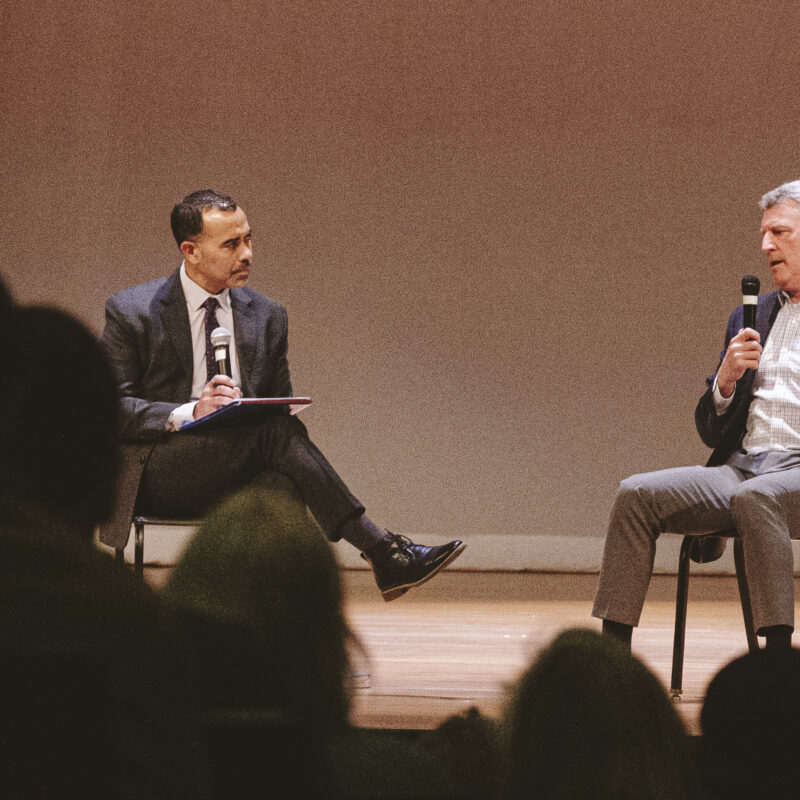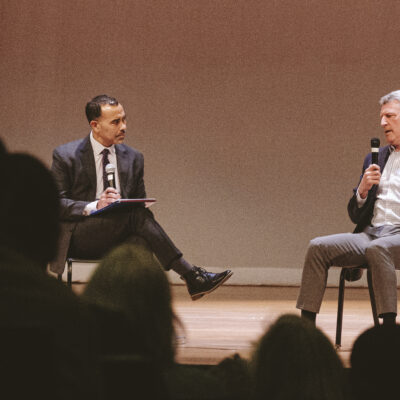“Funding has been a problem here for years,” says Ph.D. candidate John Burke. “I think the word is getting out to other colleges. When people are looking for graduate schools, the University of Virginia I think is suffering a little bit in its competitive ability.” The UVA Faculty Senate has been setting up strategic priorities for the future of the University, and graduate student funding is at the top of their list.
|
John Burke, a Ph.D. candidate in Physics, says the University is starting to have difficulty recruiting graduate students. “The word is getting out,” he says. “But I also want to say that the University is starting to get it.” |
Darden Professor Elizabeth Powell is the chair of the Academic Planning and Development Committee, a group charged with creating philanthropic goals and priorities.
“The hope is to raise money that would help to enhance what we are able to offer and possibly offer more fellowships,” she says.
Right now, the stipends for graduate students vary greatly across the board. Burke, who works in the physics department, says he is faring well compared to other departments. “I am well funded. I came in with a fellowship and I have been well funded the whole time,” he says. “I get about $22,000 a year, and that’s with a summer stipend as well.”
With $22,000 a year, Burke is indeed well paid. According to the Chronicle of Higher Education’s Facts and Figures, to which UVA provided data, the English department pays teaching and research assistants an average of about $20,000 a year. Sociology graduate students get on average $11,176 a year. Both departments’ support packages are for the academic year only. Graduate students in biology are offered a doctoral package of $24,000 for the full year, including the summer.
“With $22,000, I live relatively comfortably as a single person,” says Burke. “For someone who makes $17,000, you’ve got to have a roommate for sure; you are not going to be able to take care of a lot of things. I know for a fact that some people’s diets suffer a little bit. People are eating a little more cheaply than they probably should.”
Powell says that one of the issues with graduate stipend fundraising is that it’s usually handled on a school-by-school basis. “I think one thing that could be helpful is if all of the schools were willing to announce that graduate student fundraising were a priority, then it can become a university priority,” she says. Because all of the schools raise money independently from the University as a whole, Powell says that unifying the need could “potentially attract more attention among donors.”
In the College and Graduate School of Arts and Sciences, which includes the physics department, Dean Meredith Woo recognizes the need to raise more funds. “The faculty members are very concerned about the relatively deficient level of funding for graduate students,” she says. “But I also feel that this is a situation, which requires very careful thinking.” According to Woo, the University needs to come to an agreement on the proper size of the graduate student population. Burke agrees, and is satisfied with the job Woo is doing. “I do know that our new dean is doing, as far as I can tell, a phenomenal job getting some of this funding put together,” he says.
Woo proposes to increase the level of support for the Presidential Fellowship to $22,000 from $18,000 and add a $6,000 summer research fund. She also proposes to add a second fellowship program of an additional $5,000 of support for those who receive less than the Presidential Fellowship. The last proposal also deals with expanding the availability of support for those completing a dissertation.
C-VILLE welcomes news tips from readers. Send them to news@c-ville.com.






